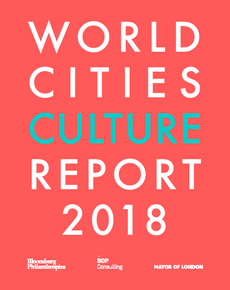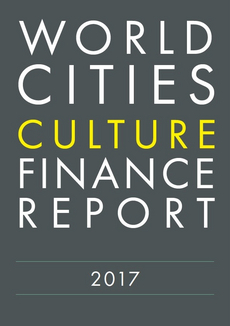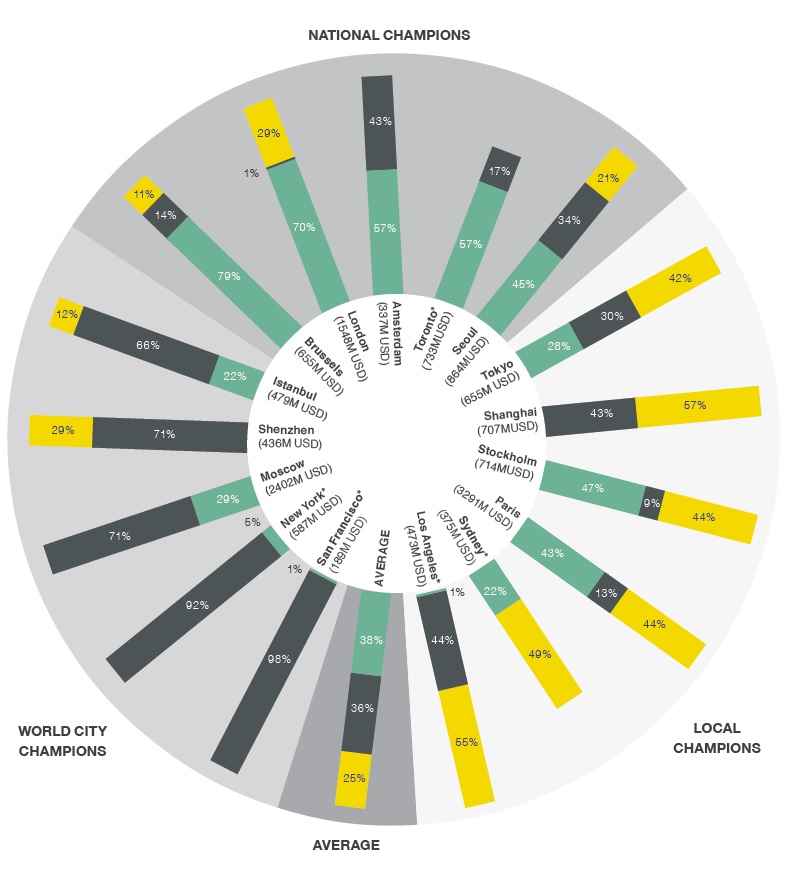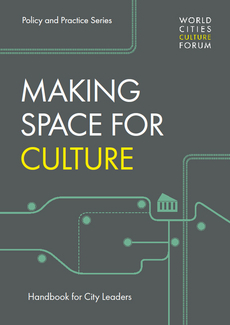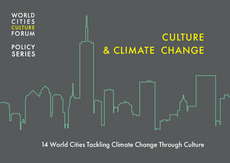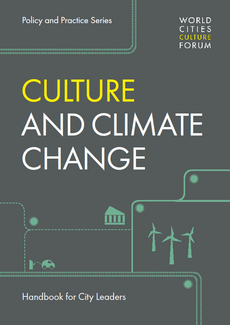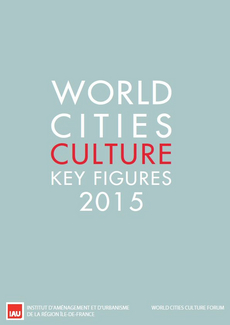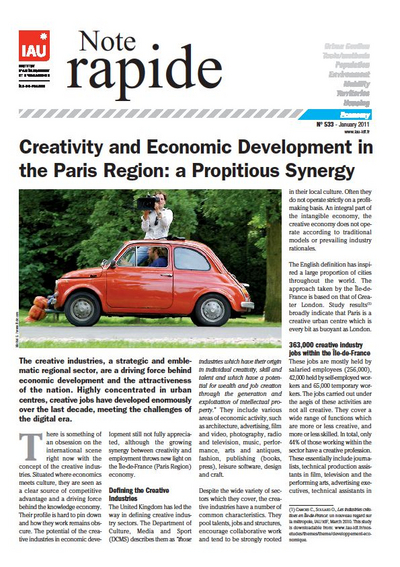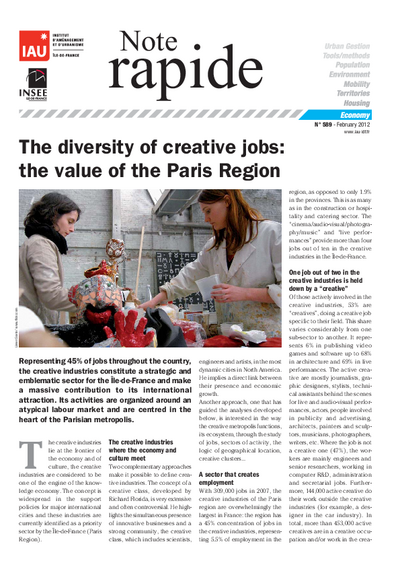The Role of Culture in World Cities
Cultural and city leaders from 32 major global cities around the world came together in San Francisco from the 14th to the 16th November 2018 to show how cities are tackling the issues they face with cultural policies and share best practices. The theme of the conference 2018 was “Culture and New Technologies Transforming World Cities” – looking at the opportunities and challenges facing cities as culture and technology become ever more intertwined. During this summit the participants launched the 2018 World Cities Culture Report. This document is the most comprehensive report on culture and it includes data and examples of transformative cultural projects from 35 major global cities. It highlights that local governments in world cities are responding to global challenges with cultural policies that are open to a greater range of people, practitioners, art forms and new spaces. It outlines the ways in which culture drives regeneration, creates jobs, increases tourism, gives young people positive opportunities and improves health. It will inspire new approaches in every member cities.
The World Cities Culture Finance Report is the first global comparative study to examine how much is spent on culture in world cities, by whom, and where the money goes. It is designed to help policymakers be aware of the full ‘toolkit’ of options for supporting culture, giving them the knowledge they need to understand and navigate an increasingly complex funding landscape.
Insights include:
- Capital cities attract a large share of national culture budgets because of the size and extent of their historic cultural infrastructure.
- In three metropoles – Paris Ile-de-France, Moscow and London – well over $1 billion of public, culture-dedicated money is spent per year.
- San Francisco, New York City and Shanghai fund culture primarily at the world city level, with almost no role for national government.
- Over 60% of all public direct culture funding is provided by city and local government.
- Chinese cities are placing a greater priority on investing in newer and more commercial cultural forms, and in the creative industries in particular.
- In United States cities, culture funding is dominated by private giving. Outside of the US, with the exception of Tokyo, no other city has more than 19% of total funding from private sources.
- Individuals dominate private giving to culture in the US and UK.
- Indirect public funding, including tax breaks and fiscal incentives, is growing in importance. Cities need to get better at capturing this and measuring its impact.
Making Space for Culture
This report deals with the challenge of Making Space for Culture: the question of how to maintain and develop a dynamic diverse mix of spaces and facilities for cultural production and consumption within the harsh realities of the real estate market.
Culture and Climate Change 2019
This is the latest report on Culture and Climate Change which presents inspiring case studies from 14 of the Forum’s member cities of how city leaders are putting climate and the environment at the centre of their cultural ambitions. The report builds on the foundations set by the Culture and Climate Change Handbook (see below), which highlighted creative and cultural responses to climate change and environmental sustainability in world cities. The report looks at four thematic areas: creative programmes & campaigns; resources & support; partnerships & innovation; policy & strategy, and identifies key trends as well as future opportunities all cities can act upon.
Culture and Climate Change
This report focuses on sustainability through the lens of the environment. It examines what cities are already doing and what more could be done in response to the defining global challenge of our time – climate change - by building culture and creativity into policies, programmes and solutions.
Click here to download the report.
World Cities Culture Report 2015
The 2015 edition of the World Cities Culture Report shows that culture is a key ingredient of world cities’ success. It draws mainly on interviews with a cross-section of up to seven opinion formers from each city: artists, business leaders, representatives of civil society, entrepreneurs and politicians. These opinion formers –150 in all –were asked for their views on the challenges and opportunities facing their cities and how culture can address them. On the one hand it indicates that culture plays a part in the economic growth, both as a sector in its own right and through supporting innovation and soft power, but on the other hand there are concerns that economic success can have negative consequences, including overstretched infrastructure, social inequality and the risk of homogenisation.
Click here to download the full 2015 edition.
Click here to download the World Cities Culture Key Figures 2015
World Cities Culture Report 2014
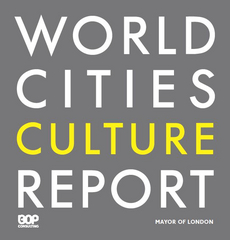
This report examines the cultural offer of 24 of the world’s greatest cities. It gathers evidence on 60 cultural indicators, assessing both the supply of and demand for culture, and reports on the thinking of cultural policymakers in those places. The level of detail of the cultural data collected across the cities is unprecedented, and represents the primary achievement of this research.
However, what makes the project even more valuable is its exploration of attitudes to cultural policymaking in the world cities. The potential for culture to contribute to economic and social development is understood by all the cities, but it plays out in different ways depending on the particularities of each place. Bringing an analysis of policymakers’ priorities together with the data gives a much more rounded picture of culture’s role in, and value to, world cities.
Transformational Cultural Projects, Report 2014
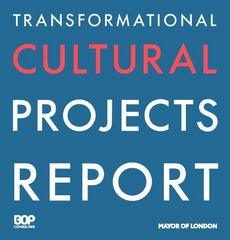
A ‘transformational’ cultural project is one that has contributed significantly to linking culture with sustainable urban development. Transformational is understood within a broad framework of human development, in which social welfare, equity and people’s capabilities matter.
The Transformational Cultural Projects Report aims to build the World Cities Culture Forum’s evidence base about the wide-ranging ways in which culture impacts on a world city and its inhabitants. Each member city selected the cultural project it thought would best meet the report’s objectives and provided the necessary information needed to draft its case study.
The understanding of a ‘cultural project’ in the report is broad and can refer to a specific cultural policy, a cultural programme or a cultural venue. The projects are not necessarily led by local municipalities but can be public, private, bottom-up or top-down initiatives.
The report does not attempt to systematise the cities’ projects using comparable quantitative indicators. While major advances have been made in the quantitative assessment of the economic contribution of culture to the success of world cities, the same cannot yet be said for the relationship between culture and sustainable urban development. This is because it is a more diverse and complex subject and one that resists easy quantification. However, the difficulty does not mean it is impossible. There is a wide-ranging literature – on wellbeing, social capital and the impact of culture on education for example – that provide plenty of signposts for how to develop such an approach.
World Cities Culture Forum. City Portraits, Report 2013
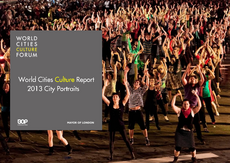
This report examines the cultural offer of 24 of the world’s greatest cities. It gathers evidence on 60 cultural indicators, assessing both the supply of and demand for culture, and reports on the thinking of cultural policymakers in those places. The level of detail of the cultural data collected across the cities is unprecedented, and represents the primary achievement of this research.
However, what makes the project even more valuable is its exploration of attitudes to cultural policymaking in the world cities. The potential for culture to contribute to economic and social development is understood by all the cities, but it plays out in different ways depending on the particularities of each place. Bringing an analysis of policymakers’ priorities together with the data gives a much more rounded picture of culture’s role in, and value to, world cities.
World Cities Culture Report 2012
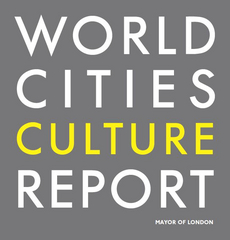
The World Cities Culture Report 2012 is a major global initiative on culture and the future of cities, set up by the Mayor of London. The level of detail of the cultural data collected across the cities is unprecedented, and represents the primary achievement of this research. The first version of this report brought together 12 cities and was launched at the inaugural World Cities Culture Summit in London held at the same time as the 2012 Olympic and Paralympic Games.
This page is linked to the following categories :
International
|
Economy
